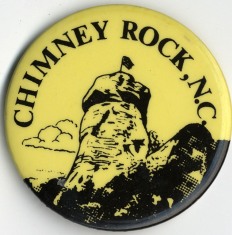“After moving to Asheville in 1898, [patent medicine magnate E. W. Grove] decided that, if the city were ever to fulfill its potential as a pleasure resort, it would have to to shed its image as a health retreat….
“First, Grove quietly purchased a number of Asheville’s tuberculosis sanitariums and rooming houses that catered to invalids and tore them down. In his many real estate speculations he attached covenants to lots that he sold preventing construction of any structures for tuberculosis patients…..
“In 1913 he opened the Grove Park Inn, touted as ‘the finest resort hotel in the world…. not a sanitarium, a hospital or a health resort. It is a resting place for tired people who are not sick.’
“To ensure that guests were not at risk of encountering any pestilence, the hotel used only new dollar bills, washed all coins and boiled all silverware twice….”
— From “Tourism in the Mountain South: A Double-edged Sword” by C. Brenden Martin (2007)

